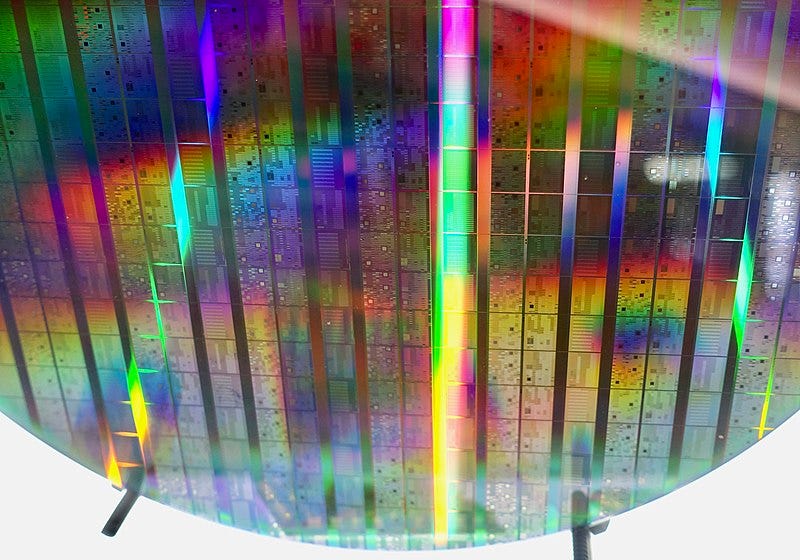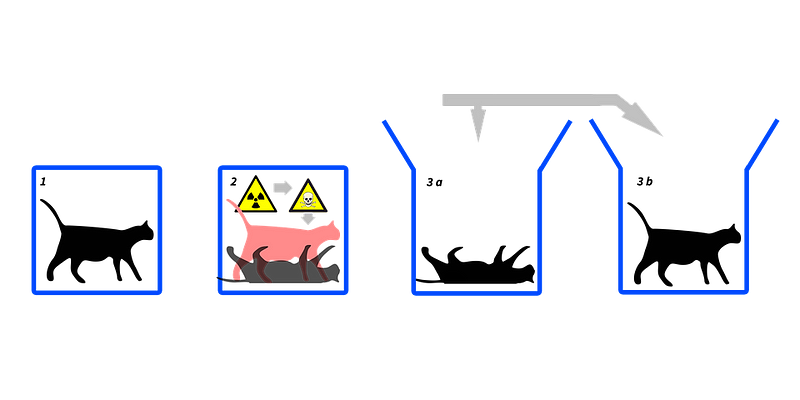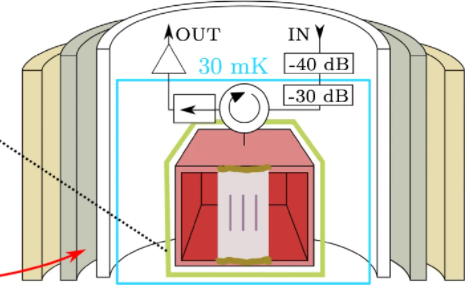Innovative Shielding for Quantum Computers Against Radiation
Written on
Understanding Quantum Mechanics
Quantum mechanics can be perplexing. As we delve into the smaller dimensions of reality, we discover peculiar phenomena that challenge our conventional understanding. Within this microscopic realm, particles can exist in multiple states simultaneously (known as superposition), and they can instantaneously influence each other's states over vast distances (a phenomenon referred to as entanglement, or "spooky action at a distance"). While these concepts may seem counterintuitive, they hold significant potential for advancements in computing, leading to the emergence of quantum computing, which utilizes these unique properties to broaden the scope of computational problems.

Exploring Superposition and Qubits
Superposition is a critical aspect in the foundation of quantum computing. Traditional bits can only represent a state of either 1 or 0, whereas quantum bits, or qubits, have the capability to embody both simultaneously. When measured, qubits "collapse" into one of those states. Furthermore, qubits can be entangled, meaning that the measurement of one qubit can reveal information about its entangled counterpart without the need for direct measurement.
Quantum computing has shown great promise, particularly in the realm of cryptography, by facilitating the development of more complex encryption methods while also providing tools to crack existing codes that are challenging for conventional computers to decipher. For instance, Google AI and NASA recently claimed a successful quantum computation that would be impractical on a classical system. The difficulty of copying quantum data arises because measurement causes it to collapse, while certain cryptographic methods rely on prime factorization, which requires extensive computational resources. Quantum systems, with their ability to maintain multiple states simultaneously, simplify this process (as demonstrated by Shor's algorithm).

The Vulnerability of Quantum Systems
Despite their potential, quantum computers face significant challenges due to their inherent fragility. Any measurement or interaction with the external world can cause superpositions to collapse, a process known as decoherence. This fragility necessitates that current quantum computers operate at extremely low temperatures and are well-protected from environmental disturbances.
As quantum systems grow in complexity, the likelihood of interference from environmental and cosmic radiation also increases. Recent studies suggest that this radiation significantly limits the coherence time of larger quantum systems.
Underground Shielding Solutions
Fortunately, human ingenuity has led to innovative solutions. Recent research introduced a deep-underground lead-shielded cryostat designed to:
- Reduce the quasiparticle burst rate by a factor of thirty
- Decrease dissipation by up to a factor of four
The quasiparticle burst rate reflects the amount of noise from environmental and cosmic particles infiltrating the system, while dissipation indicates the detrimental effects that lead to information loss through decoherence.

The researchers encased a sapphire chip affixed to a copper waveguide in aluminum foil, placed it within a steel cryostat (maintaining a temperature of approximately 30 mK), and surrounded it with a metal barrel encased by a lead brick wall, all beneath 1.4 kilometers of granite at the Gran Sasso National Laboratory in L’Aquila, Italy. Their findings demonstrated a thirty-fold reduction in correlated quasiparticle bursts through the use of deep underground shielding and radioactive decontamination in the vicinity.
While such advancements are promising, for quantum computing to become commercially feasible, alternative solutions are necessary, as not everyone can establish facilities beneath 1.4 kilometers of rock. The authors of the study propose that the success of radiation mitigation and phonon damping strategies, like phonon traps, will ultimately dictate whether future quantum processors will require deep underground environments.
Preparing for Quantum Supremacy
As we move closer to achieving quantum supremacy, the development of robust shielding systems is essential for unlocking the full potential of quantum computing.
The first video titled "Activity of a radioactive source and shielding thickness (NCPQ) - YouTube" explores the interaction between radioactive sources and the effectiveness of various shielding techniques.
The second video, "The Universe is Hostile to Computers - YouTube," discusses the challenges posed by cosmic radiation to computer systems and the strategies to mitigate these effects.